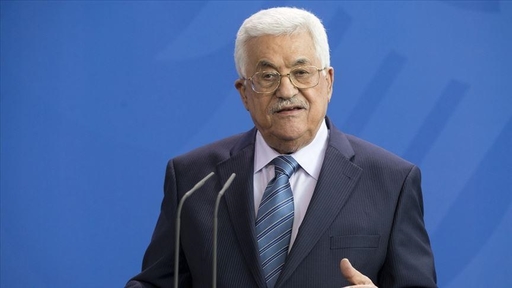On the verge of an explosion, once again – Amira Hass in Haaretz:
‘Mahmoud Abbas did not travel to the house of Defense Minister Benny Gantz in order to hear about economic and humanitarian gestures, which have in any case already been agreed upon at lower-level meetings. Neither did he go there to hear about steps that for years the World Bank or the International Monetary Fund have been recommending Israel take. That’s what a PLO official said before getting an update on the details of the meeting.’
(…)
‘A more likely guess is that Abu Mazen came to this meeting to deliver a message indicating that the situation is on the verge of an explosion: You can talk to me, and I’m still in a role and position that could advance the diplomatic process in order to avoid an explosion. But time is running out, with either a blow-up or a change in our positions imminent.
The problem is that this message is voiced by Abbas and his associates every few months, if not more frequently, and the Palestinian public has stopped taking his warnings seriously. This is the same public in which 75 percent demand that Abbas resign, according to the latest poll by the Palestinian Center for Policy and Survey Research. It’s very likely that the Palestinian leadership views Gantz as the only senior member of the current rightist government who may be attentive to these warnings, which is why Abbas made the gesture and took another risk to his image, going to the home of someone who in Palestinian eyes is a war criminal responsible for the deaths of thousands of Palestinians.’
(…)
‘One of the invitees told Haaretz that the expectation was that he would deliver an important message on internal and political Palestinian affairs. But to everyone’s surprise he expatiated at length about the origins of Ashkenazi Jews (Khazars who converted to Judaism, he says), and about the differences between Ashkenazim and Mizrahim, Jews from Arab and Islamic countries. According to this invitee, at some point Abbas said he was fed up with the diplomatic freeze, and that the PLO’s Central Council would convene in two months in order to make crucial decisions. Last Sunday, the Palestinian Foreign Minister Riyad al-Maliki repeated the same pledge/warning.’
(…)
‘Journalist Mohammed Daraghmeh from the Asharq news agency gave details, based on reports he heard from senior Palestinian officials, about the demands the Palestinians made at the meeting. These included a restoration of Palestinian security authority over cities as existed before the second intifada (namely, limiting Israel military raids in Area A), the expansion of the area in which the Palestinian Authority has security jurisdiction (namely, a renewal of the process whereby the IDF redeploys, transferring areas from category B, where the Authority has the authority to plan and build, without authority in security matters, to category A), and the return of Palestinian Authority security personnel to the Allenby Bridge crossing into Jordan. Daraghmeh stressed that these officials do not predict a diplomatic breakthrough. They said that Gantz, who talked about building trust, gave no sign of returning to the diplomatic channel at this point.’
(…)
‘A December survey by the Center for Policy and Survey Research found that despite the poor image of Fatah and Abbas, 60 percent of respondents were interested in trust-building steps with Israel, which would improve their daily living conditions in the West Bank and Gaza. Thus, even if Abbas’ goal in the meeting was purely in the diplomatic realm, the economic bonuses that were promised, if fulfilled, are critical for the survival of the Palestinian leadership he heads. This is a message to which not only Gantz, but other ministers too, can relate.’
Read the article here.
A few takeaways.
If Abbas is concerned about the distinction between Ashkenazim and Mizrahim he is on the verge of becoming an Israeli.
Palestinians might consider the PA a totally corrupt entity, they are mostly right, they are still interested in improving their daily living conditions, and for the lack of an alternative they still want the PA do deliver this for them.
How long the PA can survive without delivering is the question.
More important, Israel needs the PA and Hamas. The collapse of Hamas in Gaza would be as disastrous for Israel as the collapse of the PA on the West Bank.
Which is why I keep repeating the old message: the status quo is to the liking of all the powers that be in that region, except of course the ordinary citizens, especially the Palestinians.
